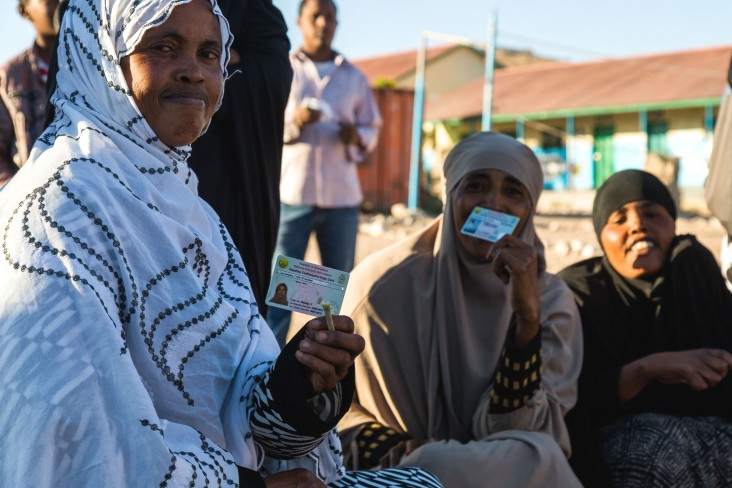Speeches Shim

February 2018—On Nov. 13, 2017, ruling party candidate Muse Bihi Abdi won the presidential election in Somaliland, a breakaway region of Somalia. Some 565,000 Somalilanders cast their ballot in a well-organized and relatively trusted election—many for the first time.
Somaliland’s National Election Commission (NEC) succeeded in opening all 1,642 polling stations on time, and despite long morning lines of voters eager to cast their ballot, the polls closed punctually and peacefully.
The task of pulling together such a vast operation in a single day is a notable achievement. This young self-declared country of approximately 3.5 million struggles with recurrent devastating drought, a large population of internally displaced people, a 40 percent literacy rate, and few resources. Past elections were positive steps in Somaliland’s democratic development, but they experienced many problems, including multiple registration of voters and claims of fraud.
Beginning in 2016, USAID partnered with the NEC to support the preparation of the elections. First, voter ID cards needed to be printed and distributed to the population. Through a USAID activity, Bringing Unity, Integrity and Legitimacy to Democracy (BUILD), new printers and training on voter ID card production were provided to the NEC. Then, 4.5 tons of ballots and related forms were procured and delivered along with cardboard polling booths and polling kits.
Armed with anti-counterfeit printing and serial numbers on the ballots, tamper-evident envelopes, seals and personalized stamps, the NEC ensured that all materials were authentic, chain of custody was meticulously followed, and all election materials could be traced to the specific polling station where they were used. This election was therefore auditable end to end.
In the countdown to the elections, USAID, through implementing partner Creative Associates International, trained 6,000 party poll watchers to help promote transparency. Several civil society organizations were also trained to help the NEC provide voter education.
Through community meetings and events, social media, loudspeakers and billboards, Somalilanders learned that their vote counted, and were proud to be part of Somaliland’s democracy in the making.
NEC Chairman Abdiqadir Iman Warsame confidently addressed the media on election day: “We expect you to reach out to the world and show everyone what we have accomplished.”
USAID’s BUILD project is currently focusing on preparations for Somalia’s 2020 federal elections. The Government of Somalia has committed to its first “one person, one vote” elections; in the past, officials were elected by a 14,000-member electoral college. The success of Somaliland’s presidential election can serve as a positive example as Somalia prepares for its own polls.
LINKS
Follow @USAIDSomalia, on Facebook, on YouTube

Comment
Make a general inquiry or suggest an improvement.